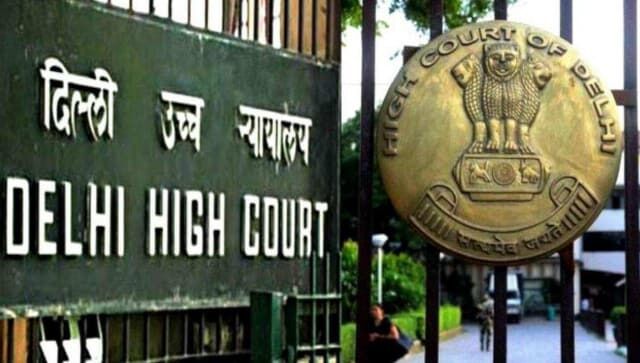Plea filed before Delhi HC against removal of Anglo Indian representation from legislature

New Delhi: The Delhi High Court on Friday sought the Centre's stand on a petition challenging the removal of the process of nomination of members of the Anglo-Indian community to the Lok Sabha and the State Legislative Assemblies.
The high court, however, observed that no purpose was left for giving such representation after 70 years.
A bench headed by Acting Chief Justice Vipin Sanghi asked the central government to file its submissions and listed for a preliminary hearing on November 18 the petition by the Federation of Anglo-Indian Associations in India challenging the 104th Constitution (One Hundred and Fourth Amendment) Act, 2019 and its Bill.
What is the purpose left? It appears it (the provision for representation in the legislature) was for assuring that you will be heard. That objective is now achieved. It is over, said the bench also comprising Justice Navin Chawla, which asked what was there to show that the community was backward.
The court observed that the community has integrated itself with the local population, noting that in 70 years, there would be three generations of an Anglo-Indian family.
Additional Solicitor General Chetan Sharma opposed the issuance of notice on the petition and said that the provision was meant for a limited time and the case of Anglo Indians who are urbanised-- cannot be compared with that of scheduled castes communities which suffer stigmatic backwardness .
Get us the constitutional debates. Show us the initial thought, the court said.
The counsel for the petitioner said that the idea behind the provision was to safeguard the weakest people and by virtue of the Act under challenge, the community has been stripped of its voice .
In the petition filed through KMNP Law, the petitioner said that the constitutional safeguard, which was also made available to the Scheduled Caste and the Scheduled Tribes, aimed to prevent the elimination of the Anglo Indian community from the political mainstream, however, the amendment unfairly tears Article 334 (b) of the Constitution of India and has arbitrarily relegated only the Anglo-Indian community to the political doldrums.
The amendment is dichotomous and built on an inherent contradiction as it preserves the safeguards in respect of the Scheduled Caste and the Scheduled Tribe but on the other hand, takes away the constitutional safeguard granted to one of India's most vulnerable communities, i.e. the Anglo-Indians, it said.
The unique history of the Anglo-Indian community, the ostracism encountered from the mainstream, the mixed European-Indian parentage, and their spatial distribution across the length and breadth of the country in small pockets, potentially prevented the coalescing of votes; during elections The arbitrary consequence of the Impugned Amendment Act would be the permanent removal of the entire community from effective representational democracy, for the very first time since the formation of the Indian Republic in 1950, the petition said.
The petition also raised concerns with respect to the 2011 census which formed the basis of the decision and inaccurately records only 296 Anglo-Indians in India , claiming that 'Anglo-Indians' constitute an ethnographic racial group in India and should not be confused with the adherents of Christianity.
The equality clause and the equal protection of the laws have been unreasonably denied to the Anglo-Indian community; apart from the glaring fact that there was no proper study (in any manner whatsoever that was conducted to identify the backwardness of the Anglo-Indian community, it stated.
The Impugned Amendment Act is arbitrary in so far as it does away with the nomination to seats and special representation of the said Anglo-Indian community in the House of People and the Legislative Assemblies of the states by nomination, after expiration of 70 years from the commencement of the Constitution, without any reasonable justification, while at the same time it extends the reservation granted to the SCs and STs by another ten years by amending clause (a) of the Article 334 of the Constitution of India, it added.
The petition further alleged that the Act arbitrarily breaches the constitutional promise to a 'minority within a minority' and could virtually become the trigger for the systematic cultural-political annihilation of the Anglo-Indian community in the short to medium term.



